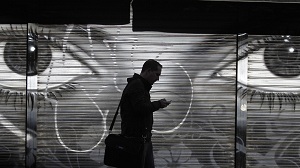The Netherlands is set to have a national referendum about new mass-surveillance legislation, after opponents of the ‘dragnet law’, or Sleepwet, secured enough signatures to demand a poll. Under Dutch law, the government has to hold a non-binding referendum on an issue if the country’s Voting Commission receives at least 300,000 valid signatures demanding it. Campaigners got over 417,000 signatures, of which the commission said 384,126 were valid. The regulator recommended that the referendum should take place on March 21, to coincide with municipal elections.
The Dutch senate cleared the Intelligence and Security Agencies Act back in July. Rather like the UK’s Investigatory Powers Act, it expands the authorities’ powers for monitoring the data that flows over the country’s internet infrastructure, while also granting them broad device-hacking powers. The organizers of the pushback say they don’t want to scrap the law in its entirety, because there needs to be an up-to-date legal basis for targeted surveillance. They just want to take out the parts that infringe on fundamental rights and undermine people’s security.
“One of the main [new capabilities] is untargeted interception of cable traffic and automated analysis of that data, which is basically mass surveillance,” said Nina Boelsums, one of the five university students who initiated the call for a referendum. “They’re also authorizing hacking of third parties. It’s an incentive for the intelligence agencies to collect zero-day vulnerabilities. Security experts are worried that that will actually make us less secure.”
There’s a broad coalition of people and organisations who want to see the law reformed, ranging from the Pirate and Libertarian parties to digital rights groups such as Bits of Freedom and international NGOs such as Amnesty International. Amnesty welcomed the news of the referendum, warning that surveillance of people who do not pose a threat to national security is a “major violation of human rights”. The Dutch Association of Journalists has also expressed concern because the law does not provide any monitoring exemptions to allow them to protect their sources








